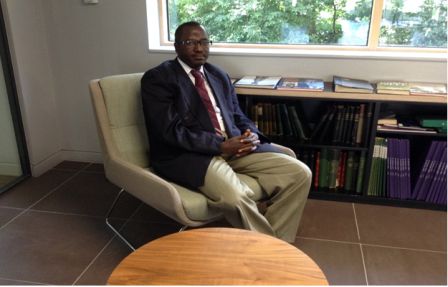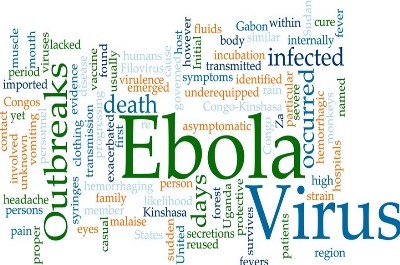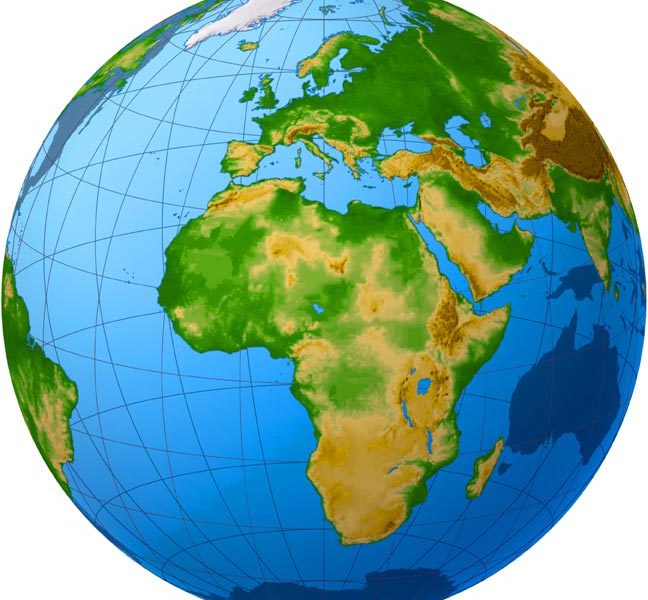Dispelling the Ebola myths and misinformation: citizens’ responsibilities
Ebola can be best described as an ‘exterminator’; a disease that is wasting away families and ridding off communities. Because of its exterminating ability, Ebola has evoked considerable fear and apprehension at both the individual and community levels, resulting in herd responses; negative or positive. (Photo: Alhassan Fouard Kanu)
What is however, evident in our situation is a negative response on the existence of the disease. This response includes the peddling of deleterious rumours such as the allegation that health workers are injecting poisonous substances to kill people. Some consider the outbreak as a hoax used by the current government to source monies from the international community. The ramifications for our misconceptions on Ebola are serious; with the potential of an upsurge on Ebola cases and fatalities; as well as unnecessary deaths from other conditions order than Ebola.
Analysis on determinants of behaviour change has demonstrated two systems responsible for the acceptance or denial to adopt a particular behaviour. They are the Normative and Lay Referral systems
The Normative System:describes the network of social pressures that might be brought to bear on an individual’s intention to adopt or reject health actions. It is assumed that the effect of significant individuals, close family and friends will typically be more powerful than community pressure, which in turn will have more influence than national norms conveyed by mass media. In other words, interpersonal influences and peer pressure are key determinants in behaviour change.
As seen in the Ebola situation in Sierra Leone, despite efforts of the Ministry of Health and it’s partners in disseminating preventative messages against the Ebola, there is still resistance by individuals to move away from risky behaviours associated with the spread of the virus and to an extent, undermine the prescribed containment measures to curb the spread.
The Lay Referral System:the process of seeking help involves a network of potential consultants from the intimate and informal confines of the nuclear family through successively more select, distant and authoritative lay men until the “professional” is reached. The interaction of lay structures and culture are critical factors considered to differentially influence utilization of health services. In this system, when an individual is confronted with a disease for example, the option of seeking medical help is often the last resort. They will meet close individuals to explain their condition. Advice or help are sometimes provided or referral made to another perceived helper including traditional healers. This lay referral system accounts for the delays in seeking timely medical attention; and it is sometimes difficult to help the patients when they turn in to health professionals in advanced and complicated state of the condition.
These two systems combined, are undermining efforts to eradicate Ebola out of Sierra Leone. There are influential people within families and communities who are ignorantly or deliberately misinforming others on the Ebola outbreak. Some of these individuals command enough respect in their communities and capable of driving a negative herd response to adopting positive behaviour change against Ebola. Some quack doctors, herbalists and spiritual healers, who form part of the lay referral system, are also often part of the normative system as having commanding influence on the locals.
It is by no mistake the MOHS is promoting and expanding partnership with communities in the fight against the disease. MOHS recognizes the fact that, organized community effort can significantly contribute to containment measures on Ebola. The Office of the First Lady Advocacy Campaign on Ebola targeting the political organs at local and national levels, traditional healers, civil societies, women’s leaders, traders among others will in no doubt widen the opportunities for alliances within communities to contain the disease.
The author recognizes the fact that, every one of us has a role to play in the normative system described inter-earlier. In this regard, he entreats all and sundry to use their influence to bring others on board in the fight against this scourge just by positively changing their behaviour and to enable them adhere to the already Ebola containment measures being put in place by the government.
Most civil servants (directors, doctors, lawyers, lecturers etc) currently working in Freetown and in cities up country are very influential in their villages, in their alma-meters, in their places of worship and other social clubs. As part of your contribution to this fight, you can go back and sensitize your village community for example, in order to influence a change of their denial state on the existence of Ebola. Sierra Leonean abroad can also partner us in this fight by calling on their dependents back home and impress on them to adhere to the preventative messages on Ebola. This will facilitate a positive herd response to the scourge and hence, its eradication.
By Alhassan Fouard Kanu, Ministry of Health & SanitationStay with Sierra Express Media, for your trusted place in news!
© 2014, https:. All rights reserved.






